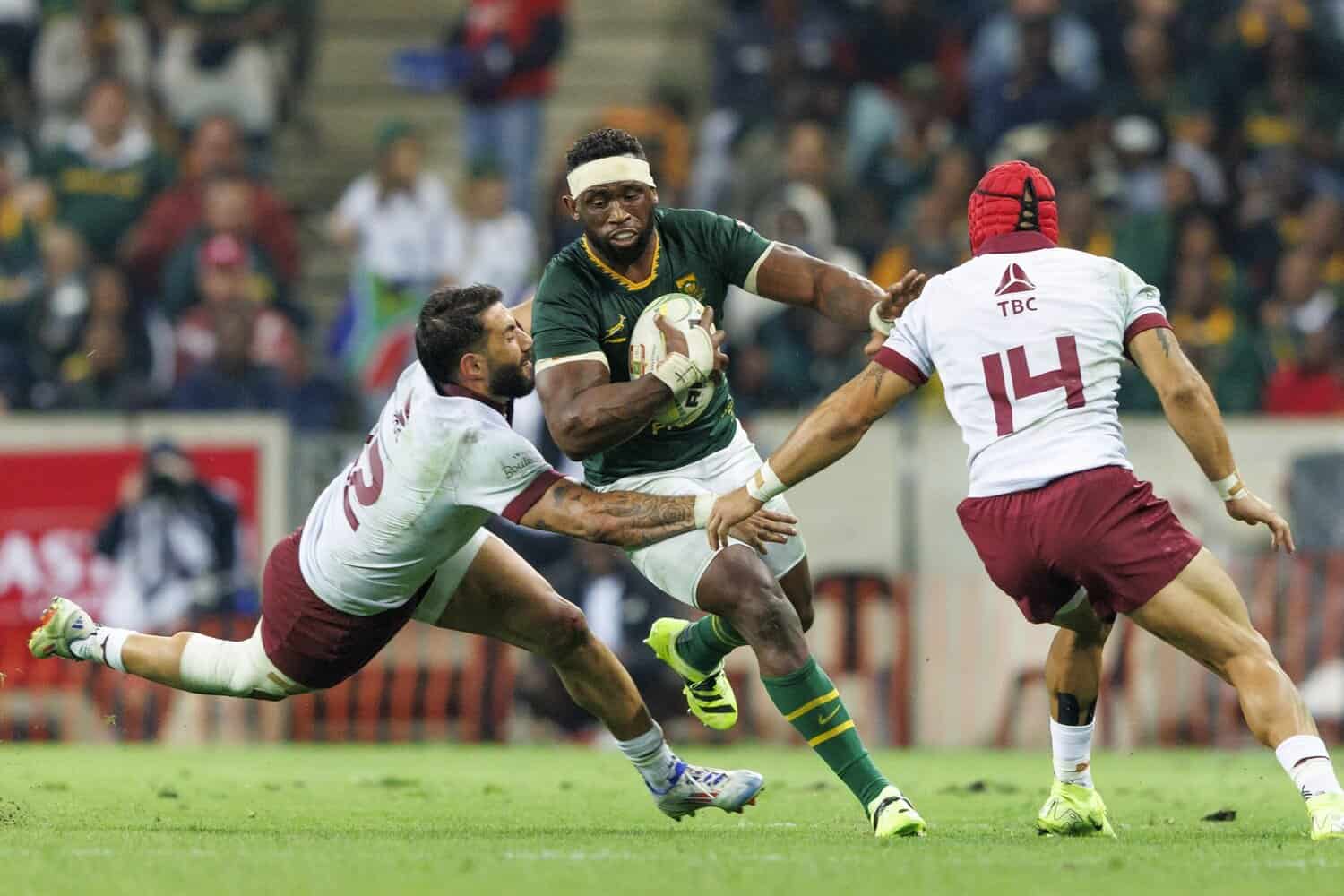The Springbok assistant coach said it was unfair to select a player based on their age, and Siya Kolisi is one of the fittest in the team.

Springbok assistant coach Mzwandile Stick said age would never count against a player, and that seasoned captain Siya Kolisi would be selected for the 2027 Rugby World Cup in Australia if he maintains his fitness and skill set.
Stick said Kolisi, who is 34 but will be 36 by the time of the World Cup, is still one of the fittest players in the squad despite his age.
Kolisi, for his part, said he is feeling good physically and described the World Cup as the “end goal”. He said head coach Rassie Erasmus’ rotational policy, as well as the team’s conditional coaches and medical teams, made this feel like an achievable feat.
‘That is the end goal’
“I feel good, my body feels good. It’s all about how it goes. I must take it year by year and game by game,” said Kolisi, who now has 93 Test caps.
“That is the end goal. I still want to be there and coach Rassie said you can be 36, but if you are the fittest 36-year-old, that is all you need. I don’t need to be the fittest out of everyone. It’s all about what I can do and produce on the field. If I still feel as good as I feel today, I think I will be there.”
Stick said it would be unfair of coaches to force players to retire due to their age. “Siya is in good shape,” the coach said.
He referred to hooker Schalk Brits, who played in the 2019 World Cup at the age of 38, and No 8 Duane Vermeulen, who was 37 at the 2023 Rugby World.
Likewise, Deon Fourie was the oldest player to make his Springbok debut, at 36. He was 37 when he played in the 2023 World Cup.
“They were still producing what we needed from them,” Stick said.
Kolisi one of the fittest Springboks in the squad
“We were surprised because when we started this year with the camps in Joburg, we started with the heavy fitness test. Siya had one of the good scores.
“To us, age doesn’t really matter that much. The more they produce, and they can keep up with our programme and how we train, even if you get to the age of 38 or 40 we will still select you.
“It will be unfair to think that way of looking at the age of the players. We don’t have the right to do so. If he can still produce, we probably will select him.”






